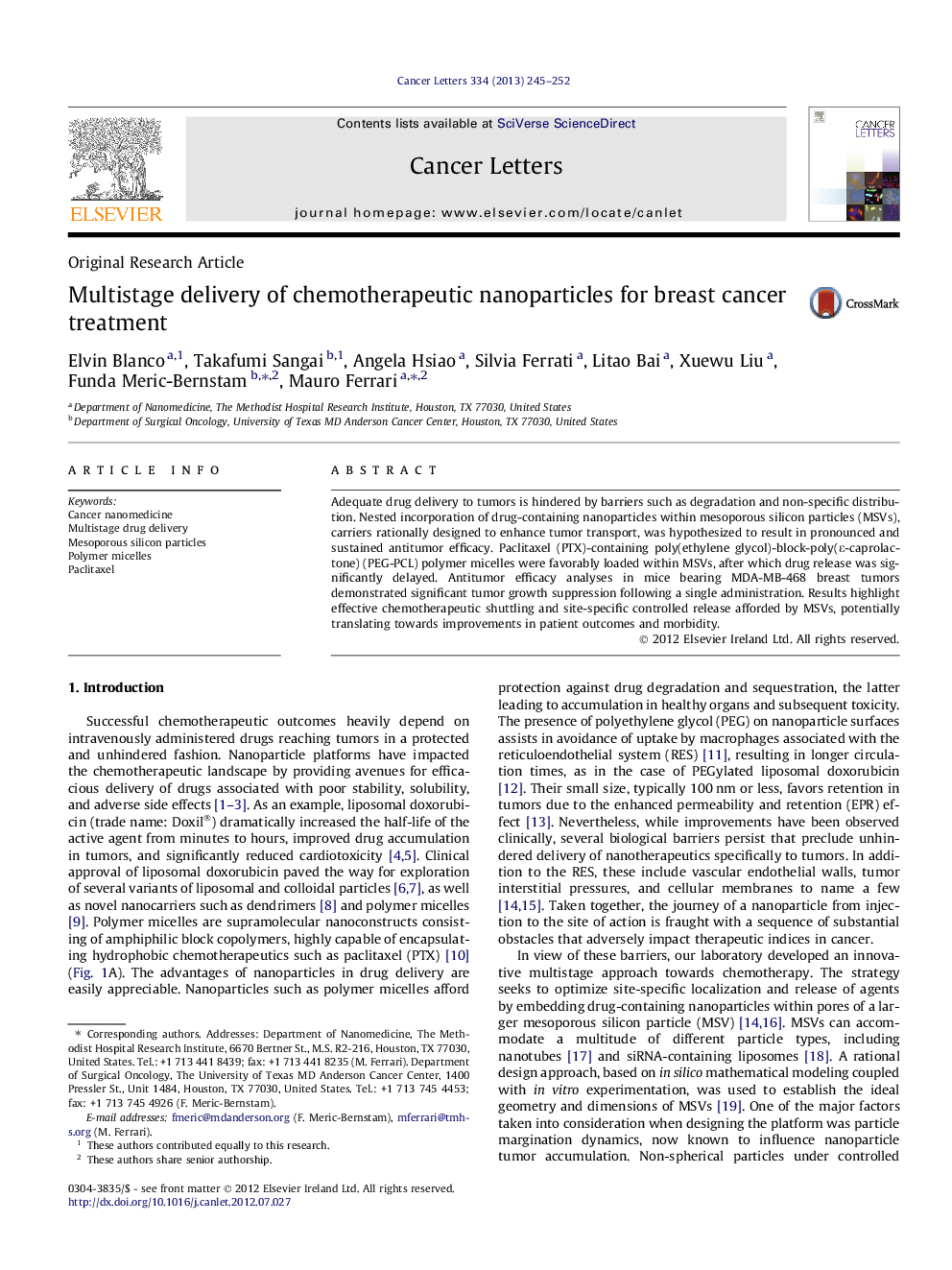| کد مقاله | کد نشریه | سال انتشار | مقاله انگلیسی | نسخه تمام متن |
|---|---|---|---|---|
| 2116299 | 1084825 | 2013 | 8 صفحه PDF | دانلود رایگان |

Adequate drug delivery to tumors is hindered by barriers such as degradation and non-specific distribution. Nested incorporation of drug-containing nanoparticles within mesoporous silicon particles (MSVs), carriers rationally designed to enhance tumor transport, was hypothesized to result in pronounced and sustained antitumor efficacy. Paclitaxel (PTX)-containing poly(ethylene glycol)-block-poly(ε-caprolactone) (PEG-PCL) polymer micelles were favorably loaded within MSVs, after which drug release was significantly delayed. Antitumor efficacy analyses in mice bearing MDA-MB-468 breast tumors demonstrated significant tumor growth suppression following a single administration. Results highlight effective chemotherapeutic shuttling and site-specific controlled release afforded by MSVs, potentially translating towards improvements in patient outcomes and morbidity.
• Biological barriers hinder adequate drug delivery to tumors, resulting in poor bioavailability and patient morbidity.
• A multistage approach was explored, consisting of nanoparticles loaded within discoidal-shaped mesoporous silicon particles.
• Paclitaxel polymer micelles loaded into mesoporous particles showed slow, sustained release and increased cargo protection.
• Multistage delivery of drugs successfully prevented tumor growth compared to clinical formulations, with less side effects.
• Efficacious tumor responses resulted from enhanced transport dynamics (increased vessel margination) and protective effects.
Journal: Cancer Letters - Volume 334, Issue 2, 1 July 2013, Pages 245–252